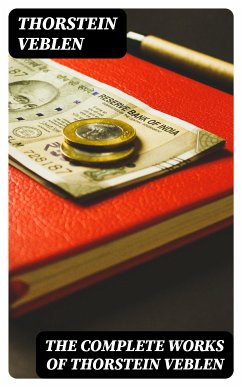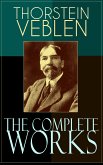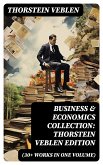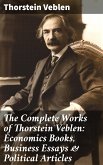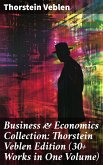"The Complete Works of Thorstein Veblen" compiles the exhaustive writings of one of the foremost social theorists of the early 20th century, known for his incisive critique of capitalism and consumer culture. Veblen employs a distinctive blend of humor and sociological insight, characterized by his sharp wit and profound observations on the interplay between economics and social behavior. Within these works, he examines concepts such as conspicuous consumption, the leisure class, and the socio-economic dynamics that shape modern society, all while situating his arguments in the broader context of American industrialism and its implications for social stratification. Thorstein Veblen, born in 1857 to Norwegian immigrant parents, was deeply influenced by the socio-economic conditions of his time. Educated at prominent institutions such as Carleton College and Johns Hopkins University, Veblen's interdisciplinary approach drew from philosophy, economics, and sociology. His experiences as a member of both the upper class and the working class enabled him to critique the very fabric of American life while advocating for a more equitable society. Readers interested in the intersections of economics, sociology, and cultural critique will find this anthology indispensable. Veblen's works offer timeless insights into the mechanisms of social behavior and economic practices that resonate even today. "The Complete Works of Thorstein Veblen" is not merely a historical artifact; it remains a vital resource for understanding contemporary issues within the framework of modern consumerism and class dynamics.
Dieser Download kann aus rechtlichen Gründen nur mit Rechnungsadresse in A, B, BG, CY, CZ, D, DK, EW, E, FIN, F, GR, H, IRL, I, LT, L, LR, M, NL, PL, P, R, S, SLO, SK ausgeliefert werden.

